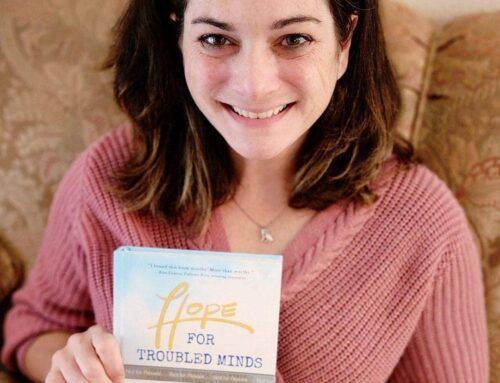A friend of mine, who also has bipolar, was in an auto accident when she was in college. She was taken to the emergency room where she had an x-ray and cat-scan. Neither showed any physical damage. She called her resident adviser to come to the hospital to pick her up. By the time he got there, she was livid with the staff, crying out to anyone who would listen, and many who wouldn’t, that she was paralyzed. Three doctors and several nurses examined her and found nothing physically wrong. As the night wore on, however, she became hysterical. She said she had a massive inflammation in her spine. She was admitted to a medical-behavioral unit where she was diagnosed as having an acute manic episode. She was given psychotropics. They also performed an MRI and found a mass in her lower spine. Another cat-scan also revealed a mass in her lungs. Things looked very dismal.
When she related this story to me, she had the distance of many years perspective. At the time, though, she was convinced she would die.
“I eagerly went about putting my affairs in order. You know,” she smiled, “I never felt so alive as when I believed I would die.”
Throughout her childhood and teenage years, she struggled with emotional imbalance. She once became so depressed she didn’t shower for three months. On an emotional high one weekend, she stole a motorcycle and was only found when she turned herself in to a police station 500 miles from home.
When this same woman became convinced she would die, she suddenly had amazing mental acuity. She made amends with her once agonized parents. She followed the advise of her physicians. She went back to church and demonstrated what her pastor described as a spiritual transformation. She didn’t court death, but was ready for it when it came.
For to me, to live is Christ and to die is gain. (Philippians 1:21)
For the first time in her twenty years of living, my friend experienced emotional balance beyond compare.
Never are we so much alive as when we know we will die.
Within a year of the accident, it was discovered that the mass in my friend’s lungs and spine were benign. Her volatile mood swings returned. Depression robbed her of the joy of motherhood. Mania prompted her to sexual infidelity. There were brief periods of respite, but these were the exception. The one consistent thing in her life was her all-encompassing inconsistency.
How can we understand the reprieve from mental anguish my friend enjoyed when she thought she would die?
Some family members and friends contended that the mental illness was only an act and that when she thought she would die, she decided to put an end to the play.
A few folks in her church believed Christ had claimed her soul in the accident, but she fell from grace later in life.
What do you think?
Discover more from Delight in Disorder
Subscribe to get the latest posts sent to your email.









Once saved always saved. Yes we can drift away from Christ, but nothing…NOTHING…can snatch us out of Christ’s hand – His promise to us and He gives us a double guarantee when He said: “I give them eternal life, and they will never perish. No one can snatch them away from Me, for My Father has given them to Me, and He is more powerful than anyone else. No one can snatch them from the Father’s hand.”
John 10:28-29 The “no one” includes ourselves.
Sound theology, my friend.
Benedict reminds us in The Rule to remind ourselves daily that we’re going to die; being mindful of our mortality helps us find meaning and correct the values based on the denial of death. If we were fully convinced of our imminent death, then greater clarity would surely ensue. It is not morbid to remember we’re going to die—it is, in fact, more life-giving than all the things we do to avoid it.
Great thoughts, Les. Thank you for weighing in.